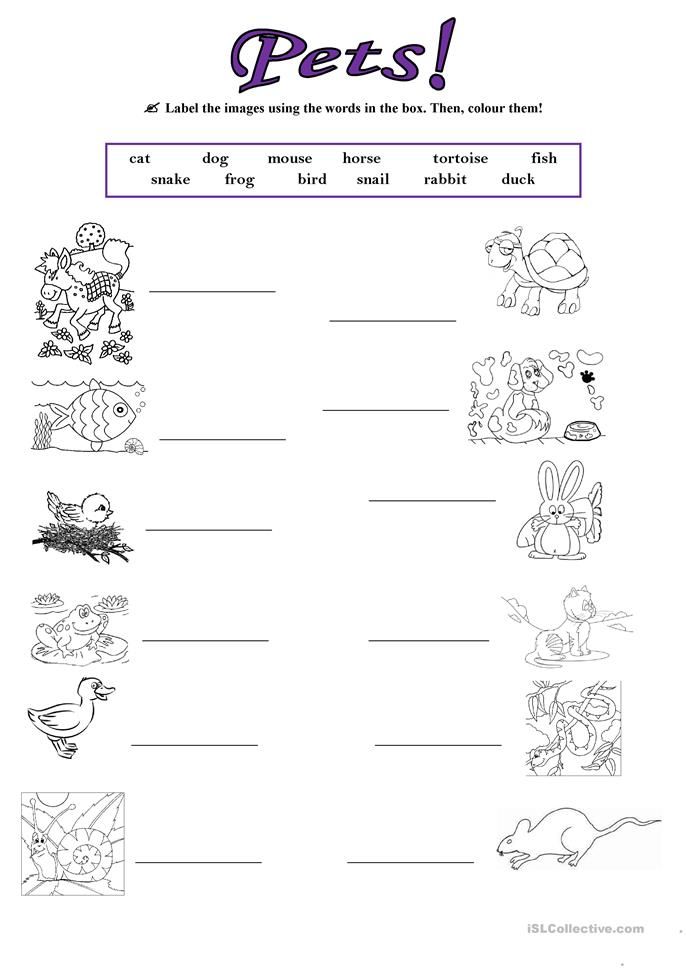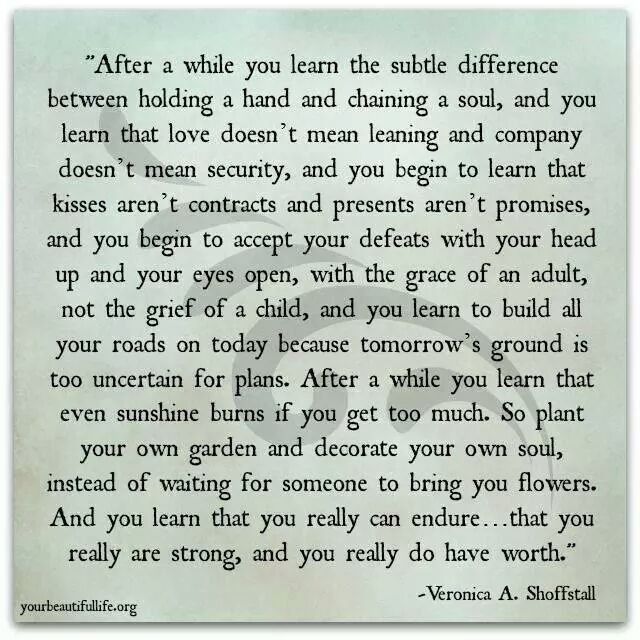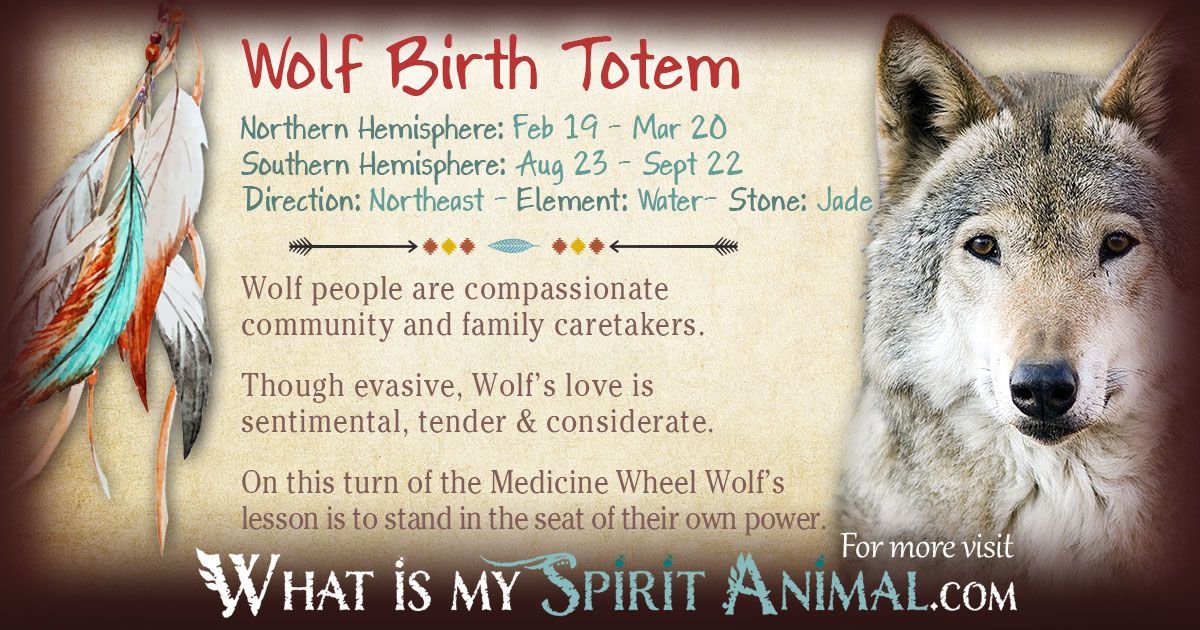Deep conversations to have
Deep Conversation Topics and Questions
Looking for some deep conversation about serious topics? Look no further, we have some great conversation questions that aren’t as lighthearted as our other questions.
We’ve broken down our deep conversation questions into separate topics. You can scan the topics to see what interests you or just choose a topic at random and get started. Remember to always ask follow up questions to find out more.
TABLE OF CONTENTS
- Deep Conversation Topics and questions
- Personal Questions
- Human Nature Questions
- Society, culture and the World
- Life and death
- Future of the human race
- Emotions
- More thought provoking questions
Deep Conversation Topics and questions
Some of these are quite heavy and some can be a bit of a downer, so make sure your conversation partner is up for it and it’s the right environment to discuss these questions. They’re definitely not questions you want to bust out at a party.
Personal Questions
- Where’s your life headed?
- How do you think you will die?
- What are the highest and lowest points of your life?
- What is holding you back from being the person you want to be?
- How have your strengths help you to succeed? How have your faults hindered you?
- What are your biggest goals for your life? What progress have you made in attaining them?
- Who are you really? Who is behind the mask that you show to the rest of the world?
- How would you react if there was irrefutable proof that God doesn’t exist? How about if there was irrefutable proof that God does exist?
Human Nature Questions
- Are humans better at creation or destruction?
- What are the best and worst parts of human nature?
- What aspects of humans have made us a successful species?
- What makes people believe absurd conspiracy theories?
- What’s something terrifying that we’ve all come to accept as a fact of life?
- If you had to sum up the whole human species in 3 words, what would those words be?
- What is the best way to explore human nature: psychology, philosophy, or biology?
- Is human nature constant or is it molded by culture? Can human nature be completely changed by culture or society?
- Is what we perceive reality or just a construct of our minds? Can our minds correctly interpret reality or is reality subjective?
- Is tribalism and people separating themselves into “us” and “them” groups, a learned or genetic trait? Can it be overcome? If so, how?
- How does tribalism and creating in groups and out groups (e.
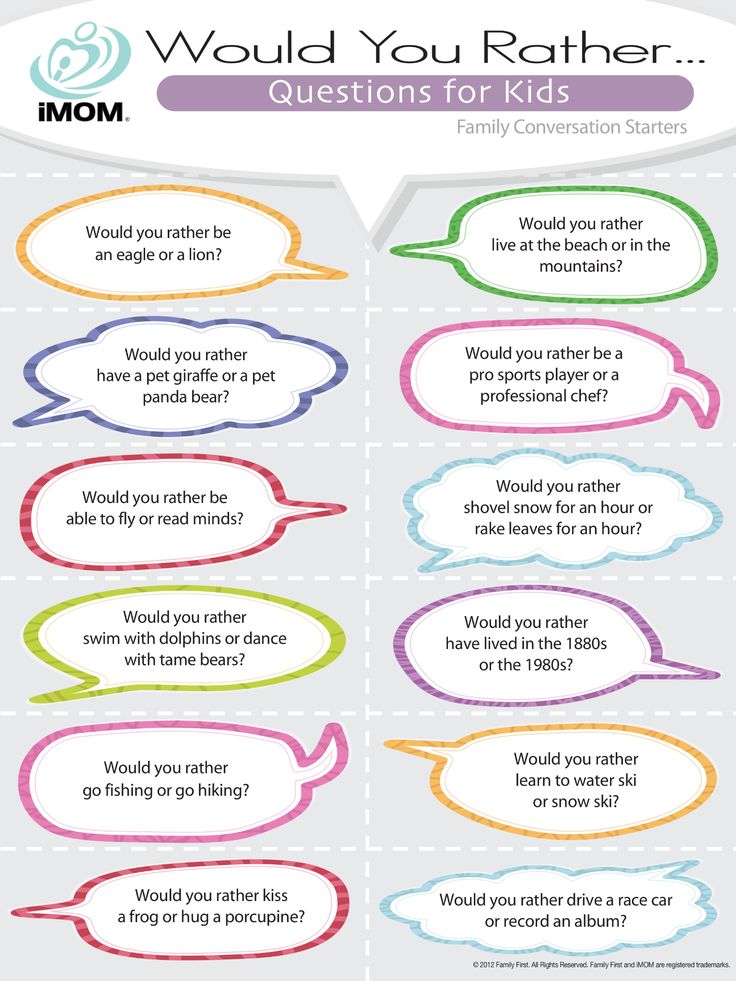 g. race, religion, sport team fans, people with a hobby, etc.) help and hurt society?
g. race, religion, sport team fans, people with a hobby, etc.) help and hurt society? - If pressing a button meant you received 5 million dollars but it also killed 5 people somewhere in the world, would you press it? What if it killed only 1 person or killed 20 people? What if the people were people you knew?
We have some other questions about human nature on our philosophical questions page.
Society, culture and the World
- What is a miracle that happens every day?
- What is the purpose of art in society?
- What would a perfect city be like?
- How important is freedom of the press to a healthy society?
- What would be different if the 9/11 terrorist attack never occurred?
- Should governments make laws to protect people from hurting themselves?
- What is the most uplifting thing happening in the world right now? What is the most tragic thing?
- Can people with vastly different cultural backgrounds live together peacefully? How?
- What does honor mean to you? How important is it to you? Does your culture value honor? What exemplifies honor in your culture?
- How important are morals in a healthy society? What are the most important morals for citizens to have?
- In the distant past, a person’s life was very similar to their grandparents’ and grandchildren’s lives.
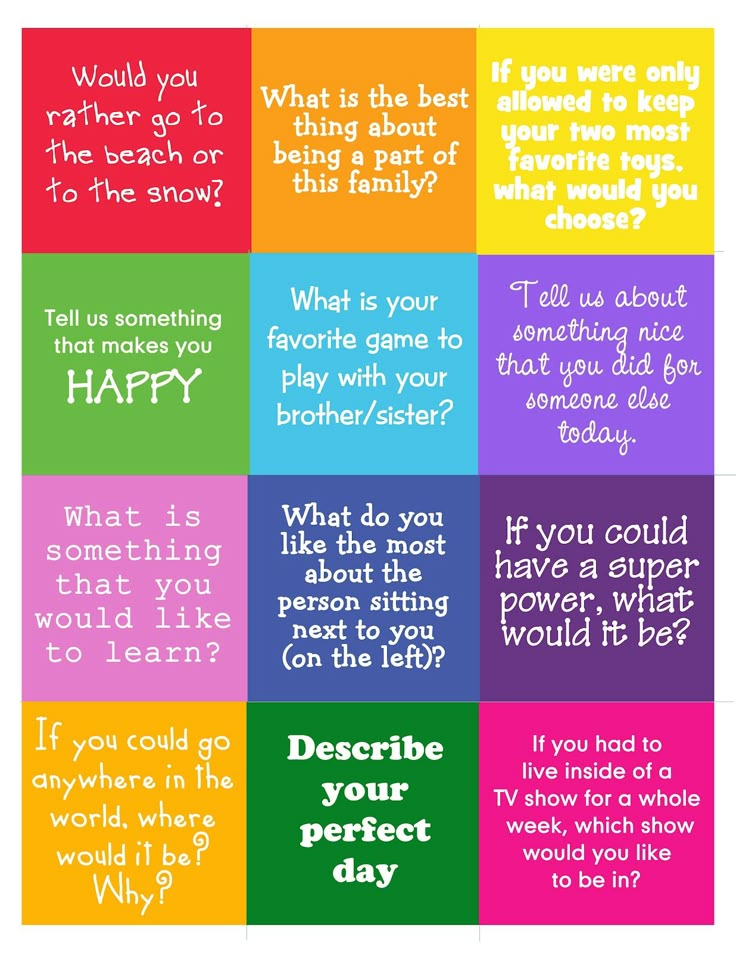 How has the rapid pace of technological advancement changed society?
How has the rapid pace of technological advancement changed society? - Do people have an obligation to help others or should people be responsible for helping themselves?
- What are the most important factors in maintaining a well functioning society? What does it mean for a society to function well?
- Should the government be involved in making laws to regulate moral behavior? If so, to what extent?
- With the invention of the internet and the advent of big data and crowd sourcing, it’s finally possible for citizens to govern themselves directly. Is it a good idea for the masses to directly govern themselves or is governance something better left to professional politicians?
We have even more questions about society and government as well.
Life and death
- What is a year of life worth? How about a day?
- What is the purpose of a human life?
- If you died today, how would you be remembered?
- Are some lives more valuable than others?
- What does the ideal life look like?
- What does it mean to die well?
- Who do you know who is living life to the fullest?
- If you died today, what regrets would you have about your life?
- If you were given an envelope with the time and date of your death inside, would you open it?
- Is taking a life ever justified? If so, where is the line? When is a person’s life considered forfeit?
- How would you like to die? Comfortably in bed surrounded by family, doing something you love, or some other way?
- If sacrificing your own life would save the lives of a specific number of strangers, how many strangers would need to be saved for you to sacrifice your own life? What if the people were friends? How about family?
Future of the human race
- What are the pros and cons of colonizing other planets? How could this help or hurt the human race?
- What is most likely to bring about the extinction of the human race? How can it be avoided?
- What would be the best possible scenario for how the world will develop in the next 25 years? What do we need to do to get there?
- Will humans as a species ever be able to work together as a whole to achieve a goal? What is holding humans back from working together on a global scale?
- What do you think about the singularity? The idea that eventually artificial intelligence will advance to the point where computers are more intelligent than humans.

- Will humanity continue to advance technologically or will we fall back to how we lived for thousands of years or fall back further to how we lived for a hundred thousand years ago?
For more future of the human race questions check out our philosophical questions about science and technology.
Emotions
- How are emotions useful for humans and the human race?
- Are emotions necessary for human survival? Why or why not?
- What is the most beneficial emotion? How about the most destructive?
- Do people have a right to be happy or should they have to earn it?
- Do animals experience emotions? If so, do they experience emotions in the same way humans do? If not, how do they experience the world and what dictates their behavior?
More thought provoking questions
- 205 philosophical questions
- Deep questions to ask a girl
- Deep questions to ask a guy
- Deep would you rather questions
- 170 hypothetical questions
- Deep questions to ask a friend
52 Questions to Bring You Closer Together
When’s the last time you had a meaningful conversation? Or deepened your relationship with your friend or partner? Knowing how to have a deep conversation isn’t easy.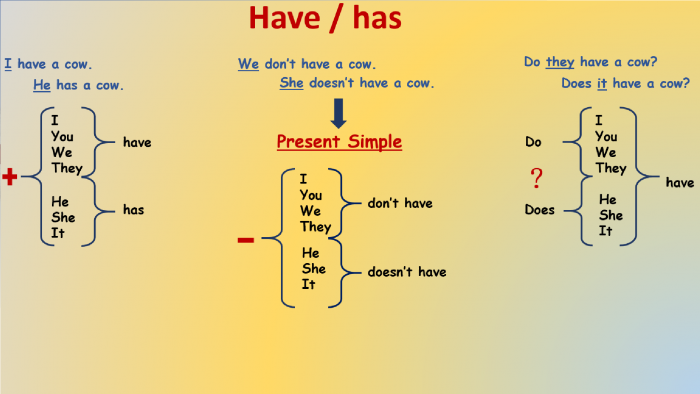 That said, diving into deep topics—rather than fluffy small talk—is crucial to maintaining an intimate connection.
That said, diving into deep topics—rather than fluffy small talk—is crucial to maintaining an intimate connection.
In an experiment, social psychologist Arthur Aron found pairs who discussed ‘deep questions’ were much more likely to maintain their level of connection than those who kept to small talk.
Since relationships are undoubtedly one of the most important aspects of our lives, Lemonade decided to examine several psychological studies, and figure out which conversation topics foster closeness.
From there, we created a list of 52 questions that can scientifically foster intimacy between you and your partner, roommate, or friend—one for every week of the year!
Ritualize deep conversation
Looking for deep things to talk about with your significant other? You’re in luck.
We suggest creating a weekly ritual of asking these questions – try it on a Friday night to recap the week. You can spiral off into other topics, but the point is to start a real conversation, and learn more about your partner.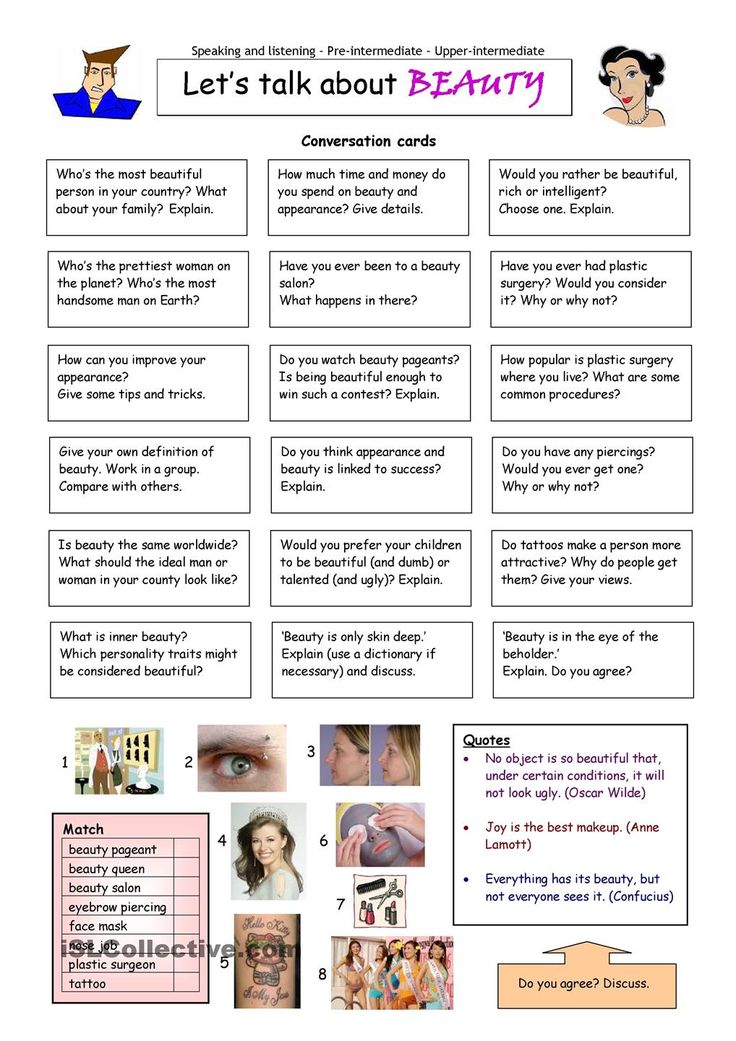
And don’t forget to ask: Are all the things I care about covered by Lemonade?
APPLY NOW
So bookmark this page, grab your partner or friend, and start reclaiming conversation!
52 questions to foster (or maintain) closeness and intimacy
1. What do you miss about being a kid?
2. If someone gave you enough money to start a business – no strings attached – what kind of business would you want to start and why?
3. Tell me about a relationship issue you’re having, and ask me for advice on how to fix it.
4. If you could go back in time, what’s one piece of advice you’d give to your younger self?
5. What’s something you want to do in the next year that you’ve never done before?
6. Tell me three things that happened in the last week that you’re thankful for.
7. What’s your favorite memory we’ve shared together? Gimme as many details as possible.
8. What makes you happy?
9. Who or what has changed your life?
10.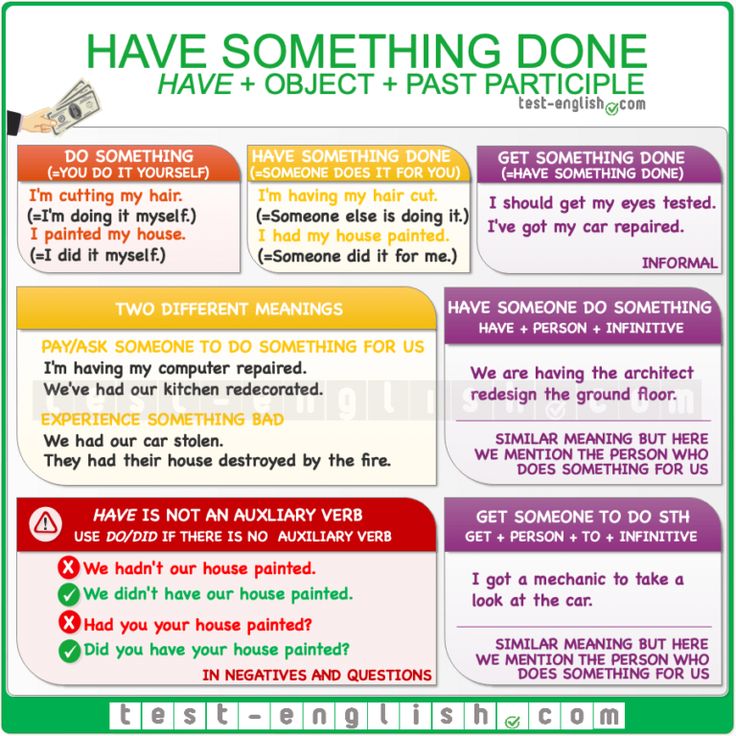 How do you best connect with others?
How do you best connect with others?
11. Are you a giver, a taker, or a matcher? Are there areas in your life where you act like one type, and other areas where you act like another? [Here’s the Giver/Taker Test]
12. What are the five most important things on your bucket list?
13. What matters most to you?
Here’s a question: Did you know Lemonade offers insurance for your stuff, your pet, and your car?
APPLY NOW
14. What’s some of the best advice you’ve ever gotten?
15. What’s your ideal weekend?
16. If you could take a year-long paid sabbatical, what would you do?
17. Who do you trust?
18. What are five things you’re thankful for right now?
19. If a genie granted you three wishes right now, what would you wish for?
20. What’s the craziest thing you’ve ever done and would you do it again?
21. What’s your favorite family tradition?
22. If you could enter a time machine, what time period would you go to?
23. What’s your favorite quote?
What’s your favorite quote?
24. What do you value most in a friendship?
25. Tell me your life story in four minutes, with as many deets as possible.
26. What’s something I’ve done for you that you’re grateful for?
27. What do you want your legacy to be?
28. Let’s alternate sharing three positive characteristics of each other.
29. What are your biggest goals for this year? How will you work to achieve them?
30. Where was your favorite place to go as a child and why did you love it there?
31. Tell me about a challenge you’ve been having at work or school, and ask me for advice on what to do about it.
32. What was the first thing you bought with your own money?
Ask yourself—do you have coverage for the things that matter to you?
GET LEMONADE
33. What are you curious about?
34. What are your top three strengths? Which strengths do you look for in a friend or partner? [Take the VIA Strengths Test]
35.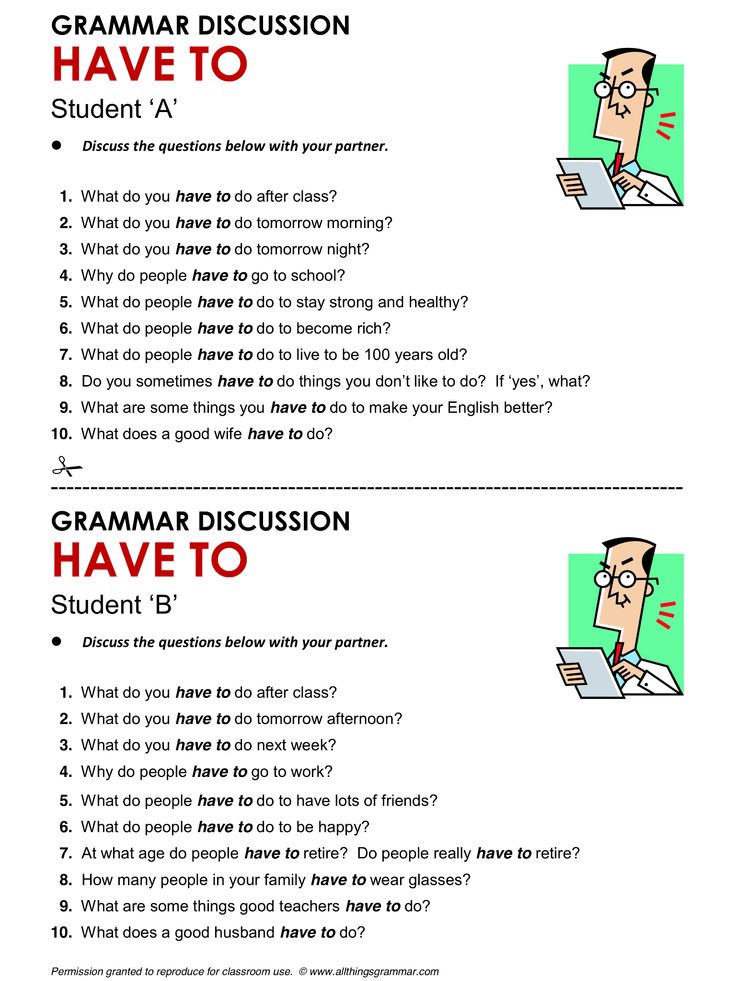 Name four things we have in common.
Name four things we have in common.
36. What are your favorite three topics to talk about?
37. What’s your earliest memory?
38. How do you express gratitude towards others? Give me an example.
39. What are the top three ways to express your love in friendships and in relationships? (Here’s the Love Languages Quiz)
40. In what situations do you feel most comfortable sharing your perspective?
41. Who’s someone you really admire?
42. How do you like to be comforted when you’re upset?
43. What would you do on your “perfect” day?
44. In 10 years, how would you like to describe your life?
45. If you had $100,000 to give away to any cause, which cause would you choose and why?
46. Where are the top three places you want to travel to some day, and why?
47. If you could have any job you wanted, that would it be?
48. Tell me about a day you had that you’ll never forget.
49. If there were 26 hours in a day, what would you do more of?
50.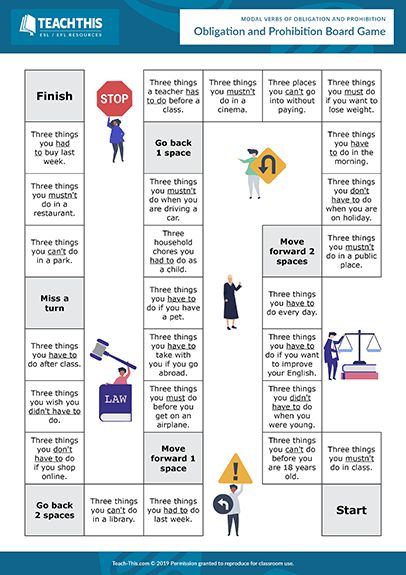 Is there something you’ve dreamed of doing for a long time? Why haven’t you done it yet?
Is there something you’ve dreamed of doing for a long time? Why haven’t you done it yet?
51. What moments or events during your childhood shaped who you are now?
52. What do you think about most?
The methodology behind these questionsThese questions will help you and your loved one dive into deep and meaningful topics that are proven to enhance intimacy. But which topics are scientifically proven to bring you closer to another person?
Here’s a look at 6 central ideas behind our 52 questions, and why these topics bring us closer together:
Gratitude
According to psychologist Robert Emmons, gratitude is good for our bodies, minds, and relationships. Whether you discuss what you’re thankful for, or express appreciation for your partner’s good deeds, gratitude deepens our relationship with others. Why? Gratitude does a few things: it establishes trust and intimacy, creates higher relationship satisfaction, and encourages you and your loved one to give even more.
Here’s how it works: when you do something your partner is grateful for, it creates norm of reciprocity, and inspires your partner to do something nice in return. With this chain reaction, you and your loved one will feel even more gratitude towards each other, which will make your relationship even stronger.
Nostalgia
Speaking of gratitude, reminiscing on past events is a sure way to inspire feelings of appreciation. A study by psychologist Clay Routledge found that recounting shared moments between you and your loved one increases feelings of social connectedness, and even makes you more supportive and considerate of each other.
To dig even deeper into nostalgia, we suggest talking about your experiences growing up.
“Discussing each other’s childhoods can really build an intimate bond between partners. Expressing how you felt as a child and things that hurt you when you were young gives your partner real insight into what shaped you as an adult,” said relationship guru Rob Alex.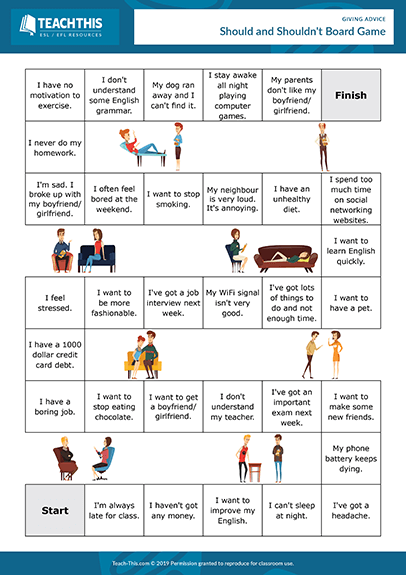
“That understanding of how you felt in good times and bad times as a kid really allows your partner to see your vulnerabilities, and can evoke deep feelings and connections with each other.”
Giving (and asking for) advice
Giving advice is one of the most powerful forms of engagement between two people, according to Professor Julia Glazer. When you advise a loved one on a challenge they’re facing, it signifies that you’re willing to be honest to them, and that you care about them. Combined, these two signals communicate an extremely high level of trust, which creates a deeper level of closeness (and trust us, trust pays off). (Psychology Today)
On the other side of it, asking for advice and expressing vulnerability also fosters intimacy. “One key pattern associated with the development of a close relationship is sustained, escalating, reciprocal, personal self-disclosure,” wrote Psychologist Arthur Aron in his study An Experimental Generation of Interpersonal Closeness.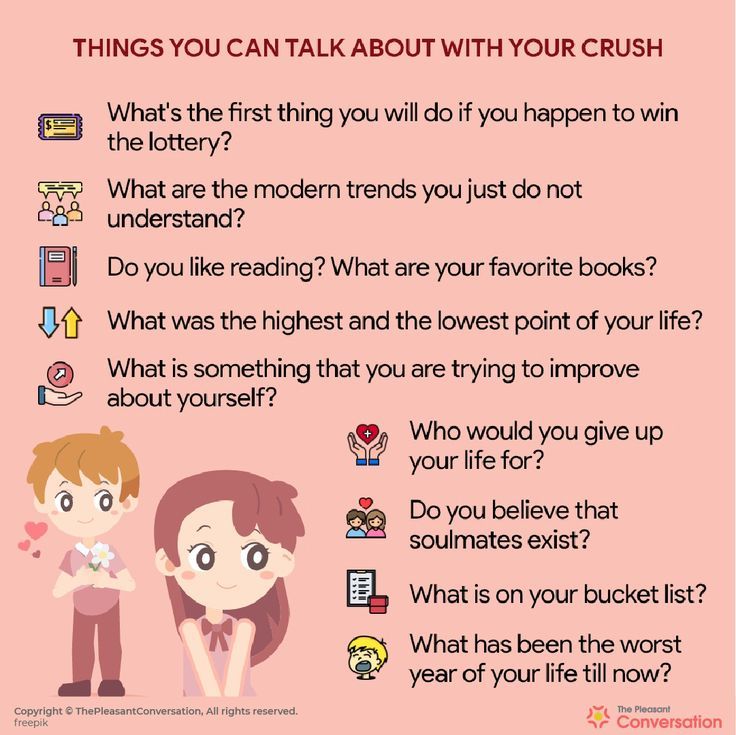
Sharing
When you share something with your partner – whether it’s a deep secret, a dream, or an aspiration – something crazy happens in your brain. Your pleasure centers light up like a Christmas tree, and a hormone called oxytocin is released. Another name for oxytocin? The ‘love hormone,’ because it plays a huge role in forming bonds between two people.
Several new studies show that the release of oxytocin makes us more sympathetic, supportive, and open with our feelings. In fact, research conducted by couple therapist Beate Ditzen found that oxytocin release helps loved ones manage conflict more effectively; when it’s released, women show a decrease in a social stress hormone, whereas men become better at communication, make more eye-contact, and become more open about their feelings – all essential behaviors for resolving conflict peacefully.
Learning each other’s preferences
If we know what our loved ones like and dislike, we’ll better understand how to be a good companion for them.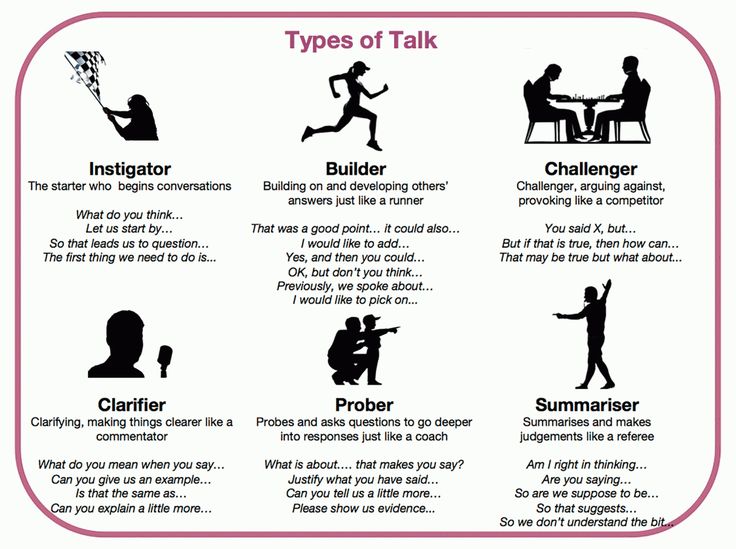 This may seem obvious, yet many of us neglect to ask our partners about their preferences point blank. By asking which activities they enjoy most, where or how they want to live, and what they value in their friendships with others, understanding their perspective will help us become better partners.
This may seem obvious, yet many of us neglect to ask our partners about their preferences point blank. By asking which activities they enjoy most, where or how they want to live, and what they value in their friendships with others, understanding their perspective will help us become better partners.
Similarly, learning how your loved one likes to be comforted when times are tough is a valuable conversation to have. “The one conversation couples can have in order to build intimacy is to ask: How can I help you when you’re suffering? Or, how would you like me to react when you’re in pain?” says clinical hypnotherapist Rachel Astharte.
Commonalities
It’s no coincidence that dating sites link people based on what they have in common – social science tells us that commonalities keep relationship strong.
According to psychologist Donn Byrne, we feel more connected to people who hold similar attitudes as us. In fact, a review of 313 studies with over 35,000 participants found that similarity is a very strong predictor of attraction and connection in relationships.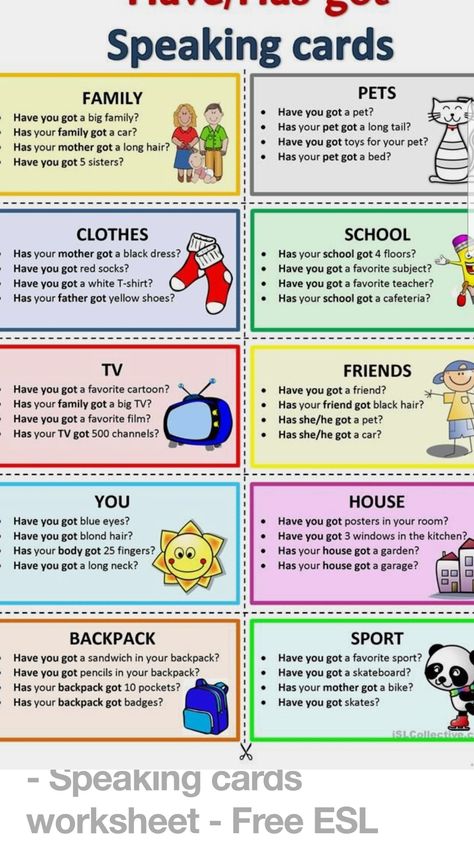 Why? Because when two people have a similar gravitational pull, it creates less division and less judgement among them.
Why? Because when two people have a similar gravitational pull, it creates less division and less judgement among them.
Discovering what you and your loved one have in common – whether it’s an opinion, a habit, or a favorite food – will bring you closer together and remind you of your friendship. Plus, reflecting on your common experiences will elicit gratitude (bringin’ it back!) for the relationship you have and the memories you share.
– – –
Thanks for reading! For more science-backed life hacks, check out the Lemonade Blog. To take Lemonade renter’s insurance or homeowners insurance for a spin, check our prices in 90 seconds.
Improvement Pill (rus), How to Have a Deep Conversation (Soci...
Have you ever felt that other people are not up to the mark
understand you?
Do you feel like you don't have many friends around?
can you call it "best friend"?
And most likely you were rarely sincerely told that
that it was a pleasure to talk with you.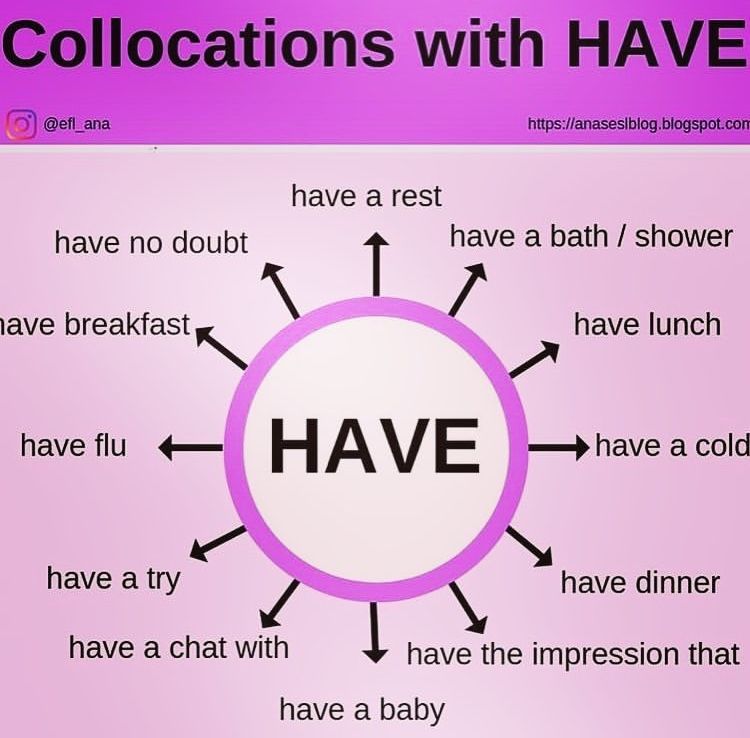
Well, if that's the case, then don't worry, because
most people feel the same way.
What does it mean - there is an opportunity to develop the ability to support
"serious conversation".
A serious conversation is a conversation with another
a person who contributes to building a strong bond.
People who are incredibly good at supporting serious
conversation, make you feel like you know them
several months, although you met a couple of hours
back.
The ability to maintain a "deep" conversation is
one of the most powerful abilities that will help build
close relationships with other people.
This ability will drastically increase your success in such
areas like dating, making close friends
and good connections in general.
To be able to maintain a serious conversation, it is necessary,
for 3 things to happen.
Before I talk about each, we need to understand:
for this loop to work, someone has to be ready
share first.
Most people are shy.
You need to be the first to make a move, you must
share first.
To be able to share properly, you need to
look deep into yourself and express your true
feelings and opinions about the topic raised.
The key actions here are to avoid the facts and find
emotions.
Facts such as your occupation, which school
you went, news about sports or politics, rumors about a random
TV show or series.
It's all superficial talk.
It will help to make acquaintance, but it is not enough
to build deep relationships.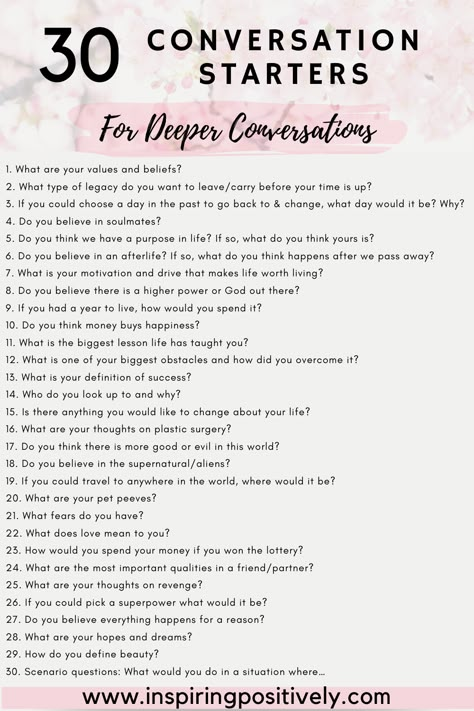
'Cause none of this tells me who you are
none of this will let me say "hey me too
felt it."
That's what you need to do - look for emotions.
Emotions like "How did you feel when
screwed up in some way, HOW did you feel when
achieved the first success, HOW did you feel,
when you first moved.
Something you regret you love, something you hate
what you dream about.
Your fears, dreams, FEELINGS, aspirations, regrets,
the most awkward moments, the happiest moments, the saddest
moments.
Your opinion about various things, what feelings do you experience
because of them.
These are THE THINGS you want to talk about, because
that they are responsible for the emotional state.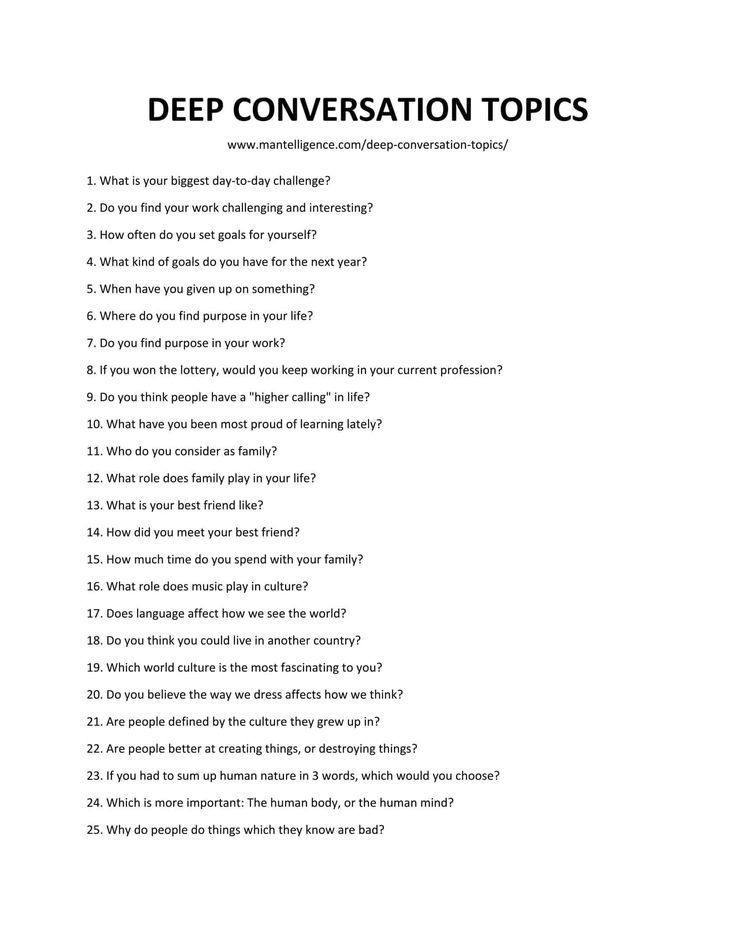
Why do people often associate themselves with heroes?
movies?
It's because you see how a hero feels
when he fails HOW he feels when he fails
loved one, see WHAT he feels when
he finally did something important, you see
who he is.
This is the stuff you should be sharing.
You want to "share" yourself like a movie character "shares"
yourself with the audience.
And know that you are on the right track if you feel like
your body is a dart board that is about to
will start throwing darts.
This is because when you share something intimate,
you become vulnerable.
This creates an opportunity for other people to mock
over you.
And this is what becomes an obstacle to the desire to share.
something like that when we first met.
People are simply afraid that they will be misunderstood and ridiculed.
But the more you share, the more this fear will begin
retreat.
Not only will you learn to share, but you will also learn
love yourself and all your flaws.
Here is a list of questions for you to think about.
He will tell you what you can share with people.
What moments do you regret?
What would you change if you could go back in time?
Why do you want to go back?
What do you want to do but are afraid to tell?
around the world?
Are you afraid you won't be able to do it?
Why?
What was the best and worst moment that happened
with you and your family?
How did you feel when these things happened?
How did they shape you as a person?
Now every time after you share,
the person who listened to you will want to share
with their thoughts and experiences.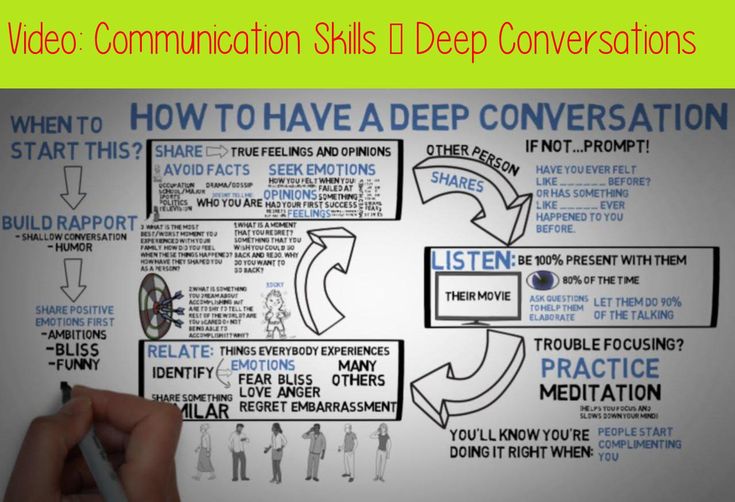
And if he does not wish, you can bring him to
conversation through simple questions “did you have
something like?"
or “Did you feel the same way too?”
This brings us to the next step: LISTEN.
A lot of people don't know how to listen.
When someone shares the most intimate with you, he gives
YOU the opportunity to dive into the depths of his world.
He trusts you enough to share something
hidden, about which he is mostly silent.
You better make sure you're listening carefully.
Being a good listener requires PRESENCE.
Listen to it like you're watching a movie.
You need to make eye contact at least 80% of the time
the whole conversation.
Ask questions that will make sure your
interest.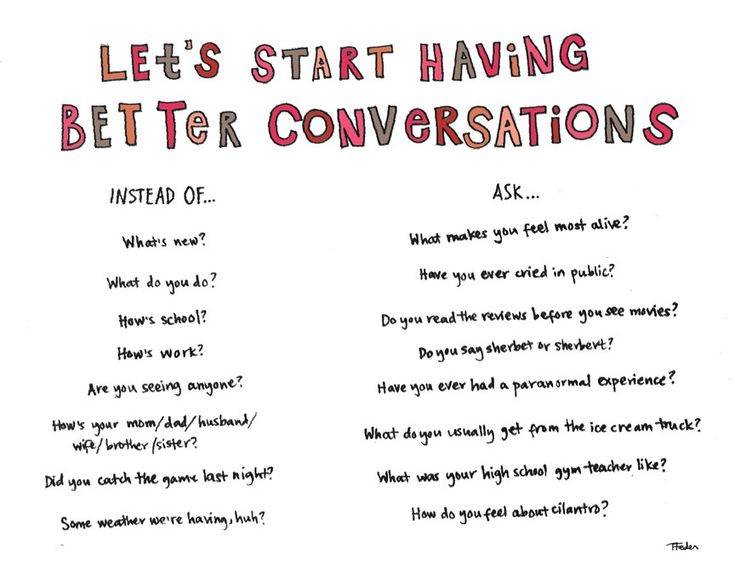
But most importantly, let him speak 90% of everything you do.
total time.
If you find yourself paying attention to strangers
objects or think about something else, then
you have problems with concentration and presence.
The easiest way to deal with this is to practice meditation.
I will talk about this in more detail in another video.
You will know that you are a good listener when
people will start complimenting about it.
There really aren't that many good listeners around
that's why they are so valued.
The last step is to refer.
We can come from different places with different stories
but we are all very similar on the inside.
What unites us all is what we all go through
our emotions: fear, happiness, love, regret, anger,
embarrassment and many other emotions.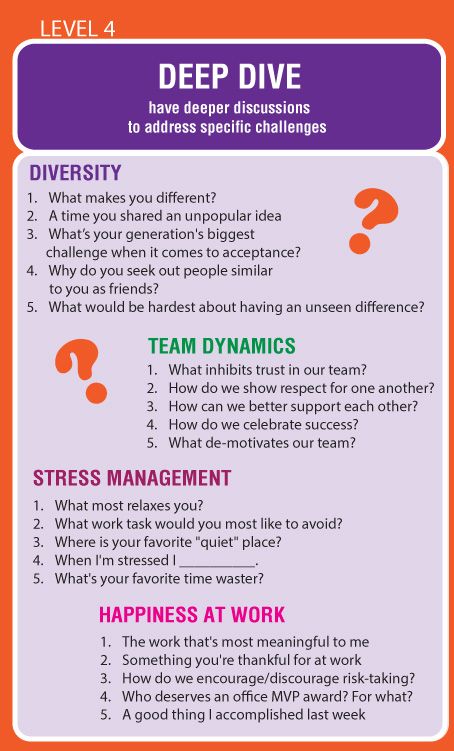
The first step is to determine which emotion
a person shares through his story.
And you can refer to it by discussing something like,
e.g. “hey what you went through… I felt
the same".
When is the best time to start such a conversation?
First, build a relationship.
You need to talk about superficial things, you can even laugh
over this to build a quick relationship.
But we'll talk about that in another video.
After building this relationship, it is necessary to share
positive emotions.
You shouldn't talk about your biggest regret
right after you meet the person.
Tell us more about your ambitions, what makes you
happy, funny moments that happened to you.
At first, a serious conversation may seem completely
not comfortable, especially if you're not used to it.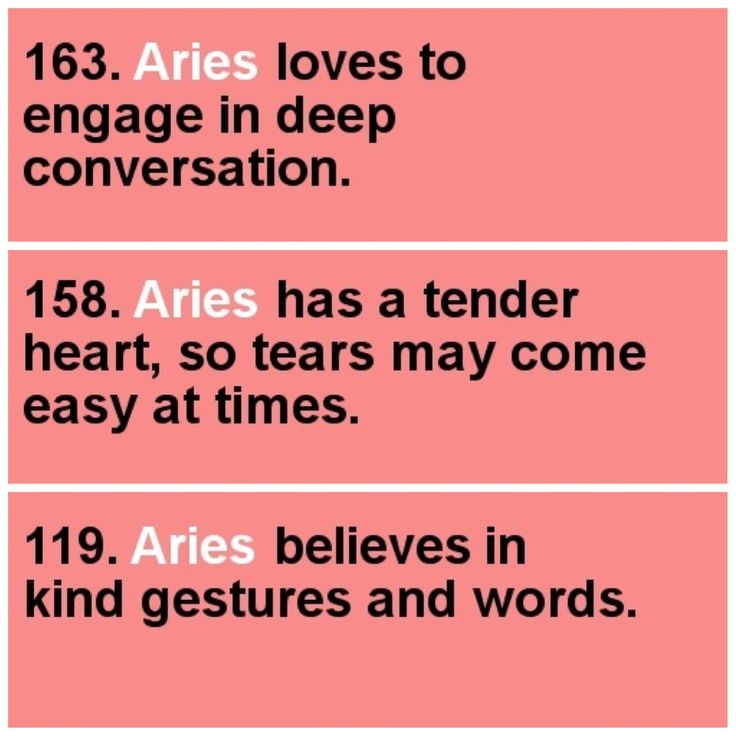
But later on you will enjoy it like
and those people who discover
soul in front of you.
More people will admire you and above all
it's you who will learn how to face your past, be proud
for what you've been through and share that pride
with the rest of the world.
The ability to maintain a deep conversation is one of the most
used social skills that will come in handy
in your arsenal.
It will help open a hundred doors, help to get
soooo many relationships that you will cherish
until the end of his life.
Use these 10 deep questions to get to know your interlocutor better
Author Kluber Read 6 min. Views 4.9k. Posted by
It's no secret that introverts hate talking without meaning.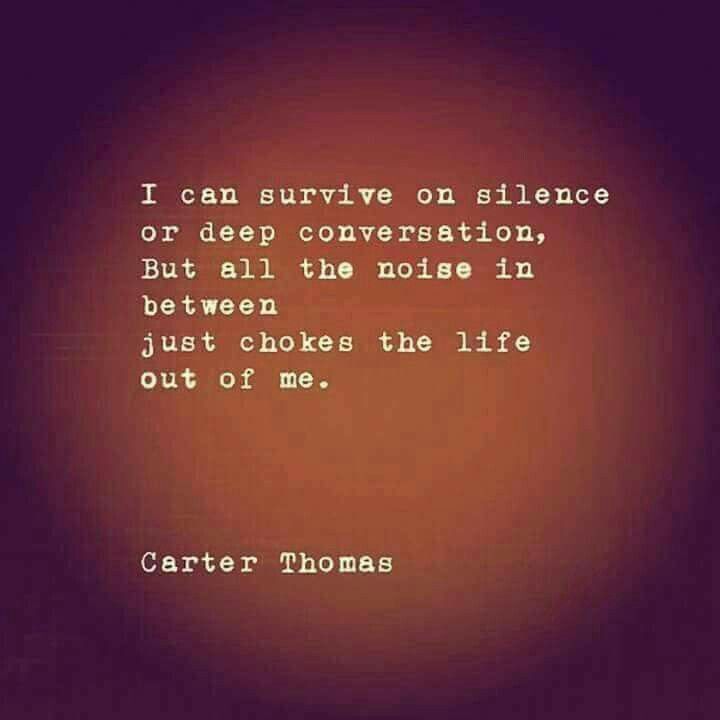 It's superficial, pointless and, frankly, a waste of time.
It's superficial, pointless and, frankly, a waste of time.
An introvert doesn't care what you think about the weather. They want to know more. They want to dive deep into your purpose, your values, and why you get up in the morning.
Research has shown that meaningful conversation is good for us. A recent study published in the Journal of Psychological Science involved college students wearing an electronically activated recorder with a microphone on their shirt collar that recorded 30-second snippets of conversations every 12.5 minutes for 4 days.
This created "conversation diary" . The researchers then reviewed the recordings and classified them as small talk or more meaningful conversations. They also looked at how happy each person is subjectively.
Results? The happiest person in the study had twice as many substantive conversations.
In The New York Times, lead researcher Matthias Mehl spoke about how introverted and extroverted people are social creatures who need to communicate with others, and meaningful conversations are more unifying than meaningless ones.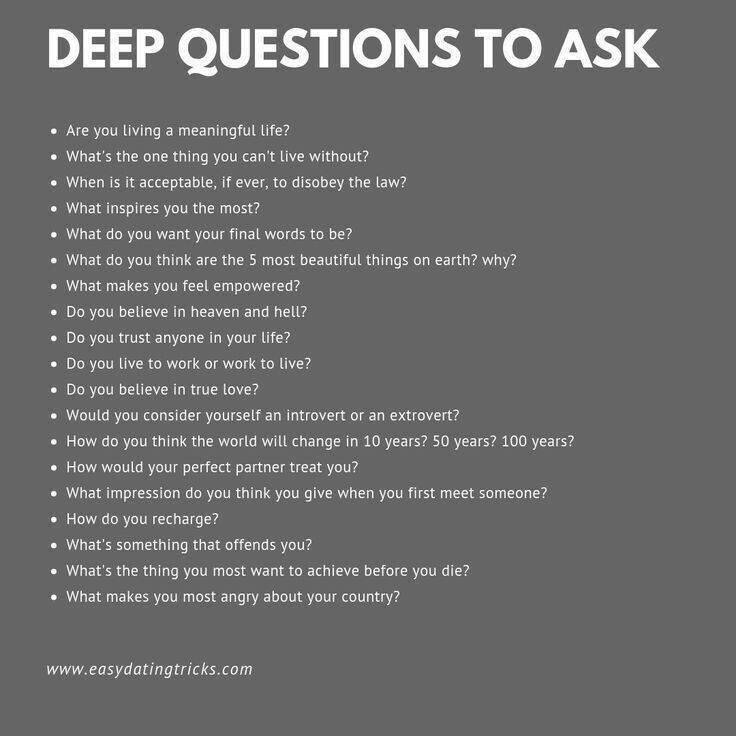
So the question is, how can you skip small talk and design more meaningful conversations?
We have 5 questions you can ask someone that lead to deep conversations . Before we move on to these 5 questions, we need to understand three important principles.
1. Welcome to silence
We become uncomfortable when we experience silence. Even if we do listen and participate in the conversation, we feel the need to avoid silence at all costs.
However, silence makes us panic and fill the gap with empty words .
Instead of seeing silence as something bad, let it linger and let the conversation flow naturally.
The more silence, the more comfortable you will feel.
You can stop and think about what is actually said, give yourself time to come up with a complete answer.
2. Don't jump to conclusions
We are all guilty of this. When we listen to people, we draw preliminary conclusions in our head. We use our past experiences and stereotypes to better understand the situation. This is normal, but be careful.
When we listen to people, we draw preliminary conclusions in our head. We use our past experiences and stereotypes to better understand the situation. This is normal, but be careful.
Don't let your own brain's judgment cloud reality. If you're trying to figure out where it's coming from, don't try to change what they mean by saying things like "Oh, you mean you prefer to do it this way."
Instead, ask questions such as “now wait, explain this to me again. How do you prefer to do it?”
3. Stop thinking about what you're going to say next
We hate silence, so most of us prepare what we're going to say when someone stops talking. But it makes us not listen to what someone else is saying.
But in this case, the conversation is going wrong, the thread is lost. The next time you find yourself preparing your response, just let it go and focus on what people are saying.
5 Questions to Ask for Deep Conversations
Now that we've covered these 3 important principles, here are 10 questions we can ask to start deep conversations.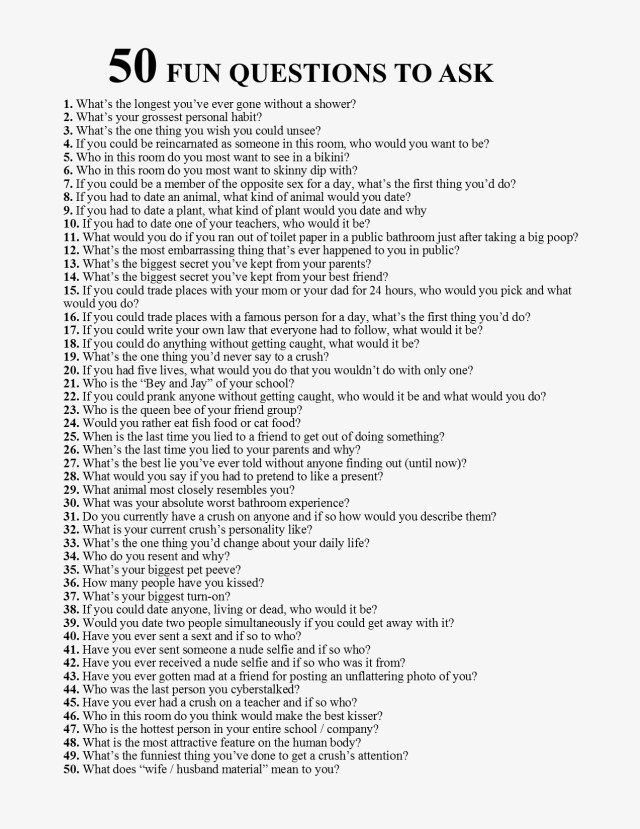
1. What is your background?
This is a great starting question that can inspire a constructive response.
Some people will have an immediate, surprising answer to this question, which can take you down a lot of paths. Others need help . If someone cannot answer a question, you can ask them additional questions: “ How has your life been up to this point?”.
2. What are you passionate about?
One of the fastest ways to talk about something interesting. The response of the person will usually be excited, you will see how they will be sprayed.
3. If I knew you well, what intriguing things would I know about you?
An open question that allows a person to go as deep as he wants. This can spark some sincere and deep conversations, so be prepared to listen, understand, and make others feel heard.
4. What in your life makes you feel most satisfied?
This is a question that makes people think about what really makes them feel happy. Great positive energy booster for any conversation.
Great positive energy booster for any conversation.
People open up about things that make them feel good, so this can lead to deep conversations.
5. How would you describe yourself?
This question may not seem particularly special, but its ambiguous nature will reveal a lot about one's personality.
Why?
Because you can answer this question in different ways. People can talk about their personality, their work, their family.
Regardless of what they answer, their overall priorities in life will be shown .
6. Who is your hero?
This question says a lot about a person.
Some will talk about a family member, others will talk about an athlete or pop culture celebrity.
Dig deep and really find out why they chose who they made. What features of this person do they admire? You will learn a lot about your values. They usually mention traits or characteristics they aspire to have in themselves.
